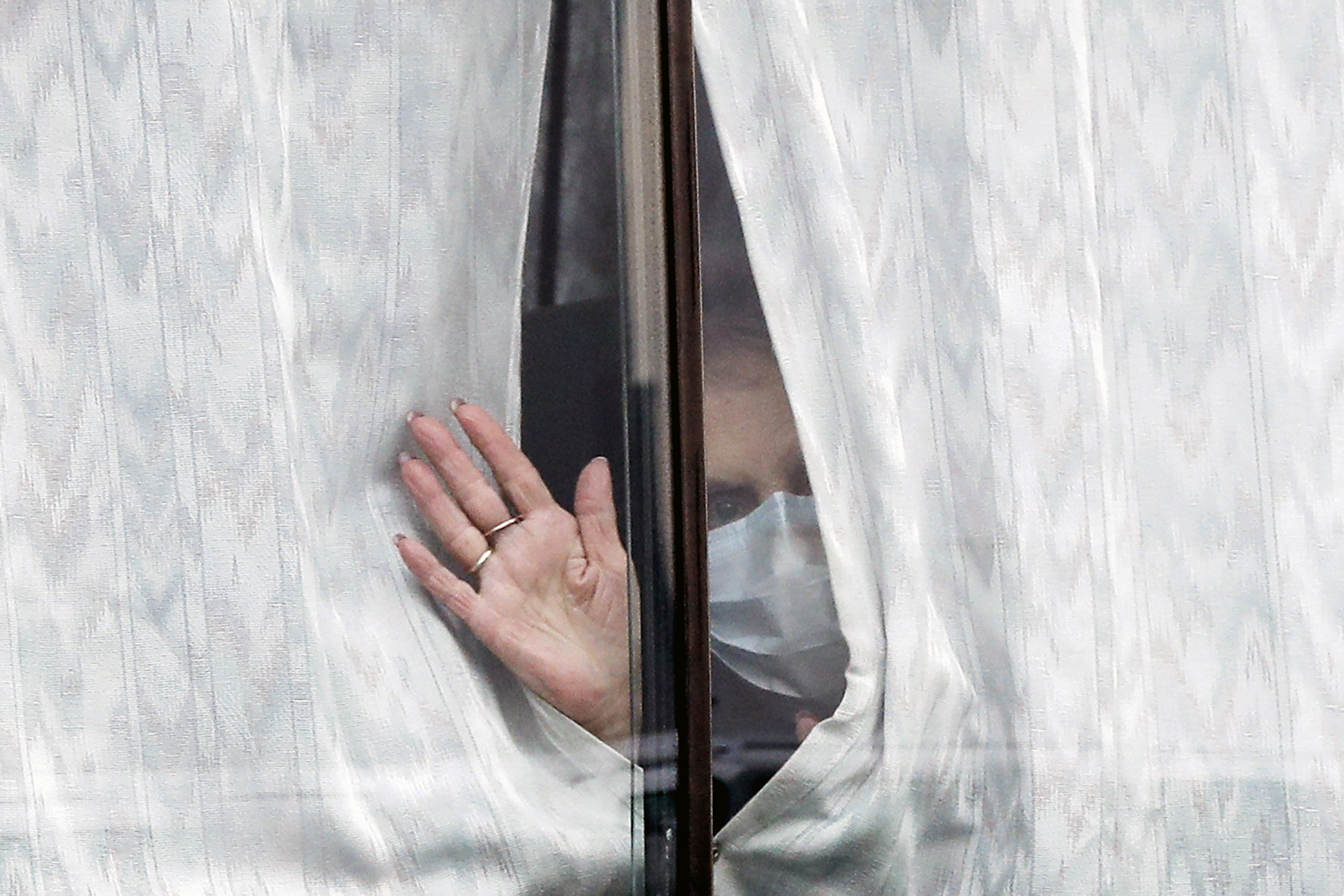
AP Photo/Eugene Hoshiko
A dark year of sickness, reckoning, loss — and periodic bits of light
Scholars tell of muddling through, insights gained, small wins, and a rescue pup named RBG
Like countless others, members of the Harvard faculty have been finding their way through the difficult days of 2020, planning Zoom wedding receptions, socially distancing from family and friends, tending to patients suffering with COVID-19, learning to teach students remotely, and trying to make sense of a year defined by a deadly pandemic, a reckoning with racial, social, and economic inequities, recession, and political upheaval. As December winds to a close, the Gazette asked faculty from across the University for their thoughts on how history, and they themselves, will remember the tumultuous past 12 months.
Annette Gordon-Reed
Carl M. Loeb University Professor
“I’ll reflect on 2020 as the year that people the world over were reminded of how vulnerable we humans are to the microorganisms with which we share the Earth …”
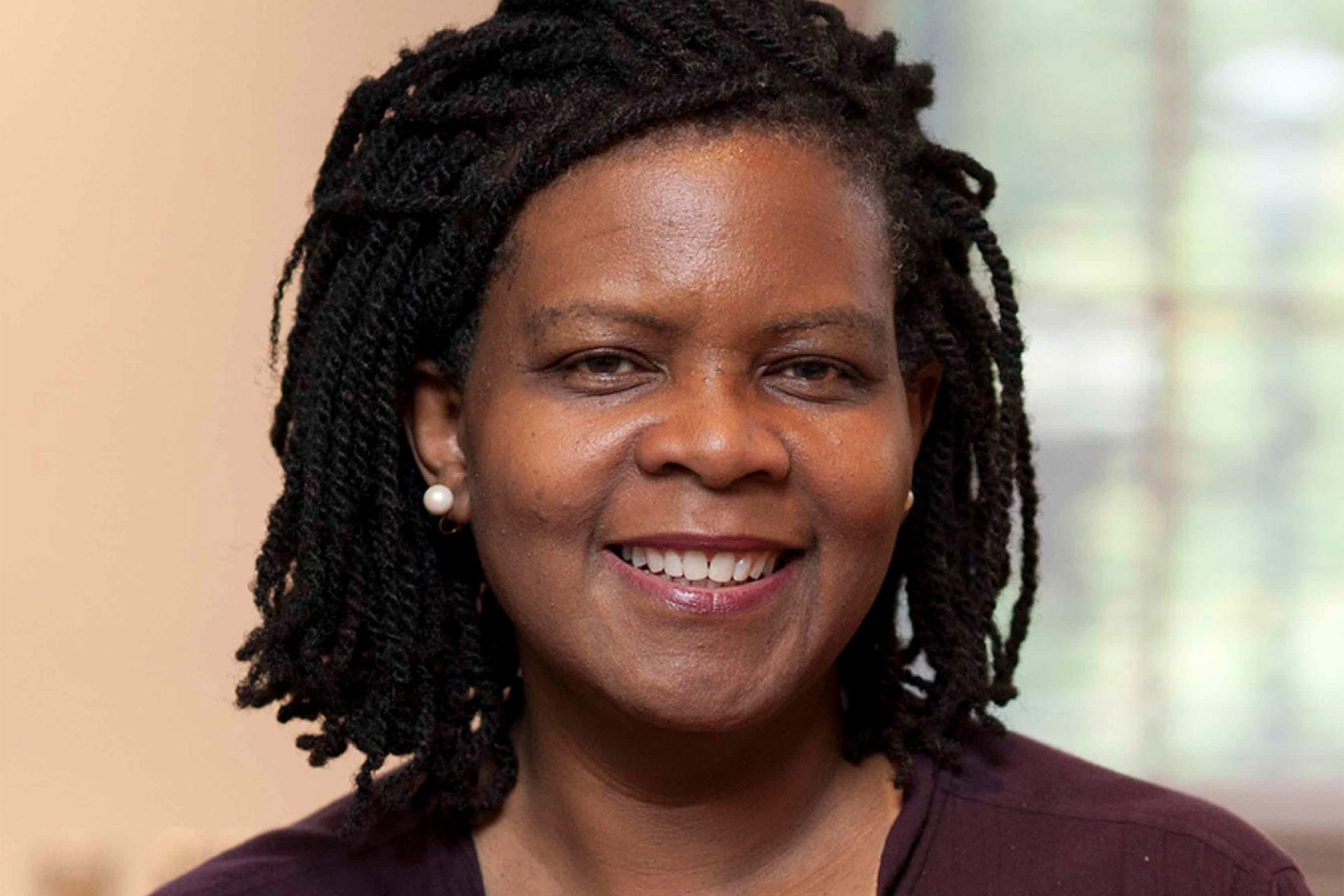
I had such high hopes for 2020. Just the name of the year itself — 2020, the repeated number, the association with good vision. Of course, 2020 would be great, I vowed as I stood with family members as the clock struck midnight. I could not have predicted one of the two calamitous events that have defined the year: the COVID-19 pandemic and the fallout from the 2020 presidential election. Had I been told that I’d be doing classes from my NYC apartment for most of the academic year, on a platform — Zoom — that I had been on only once before, I would have thought the pronouncement crazy. As for the election, given that one candidate had signaled his unwillingness to leave office, even before he was elected, indicating that it would be impossible for him to lose without there having been fraud, what has happened since Nov. 3, though massively disconcerting, is less surprising. I’ll reflect on 2020 as the year that people the world over were reminded of how vulnerable we humans are to the microorganisms with which we share the Earth, and as the year that Americans were shown how vulnerable to bad acting our republic really is.
Ashley Whillans
Assistant Professor of Business Administration
“As I have been so often reminded this year, there is no better time than the present to start spending our days with intentionality, presence, and purpose — one moment at a time.”
Photo by Evgenia Eliseeva
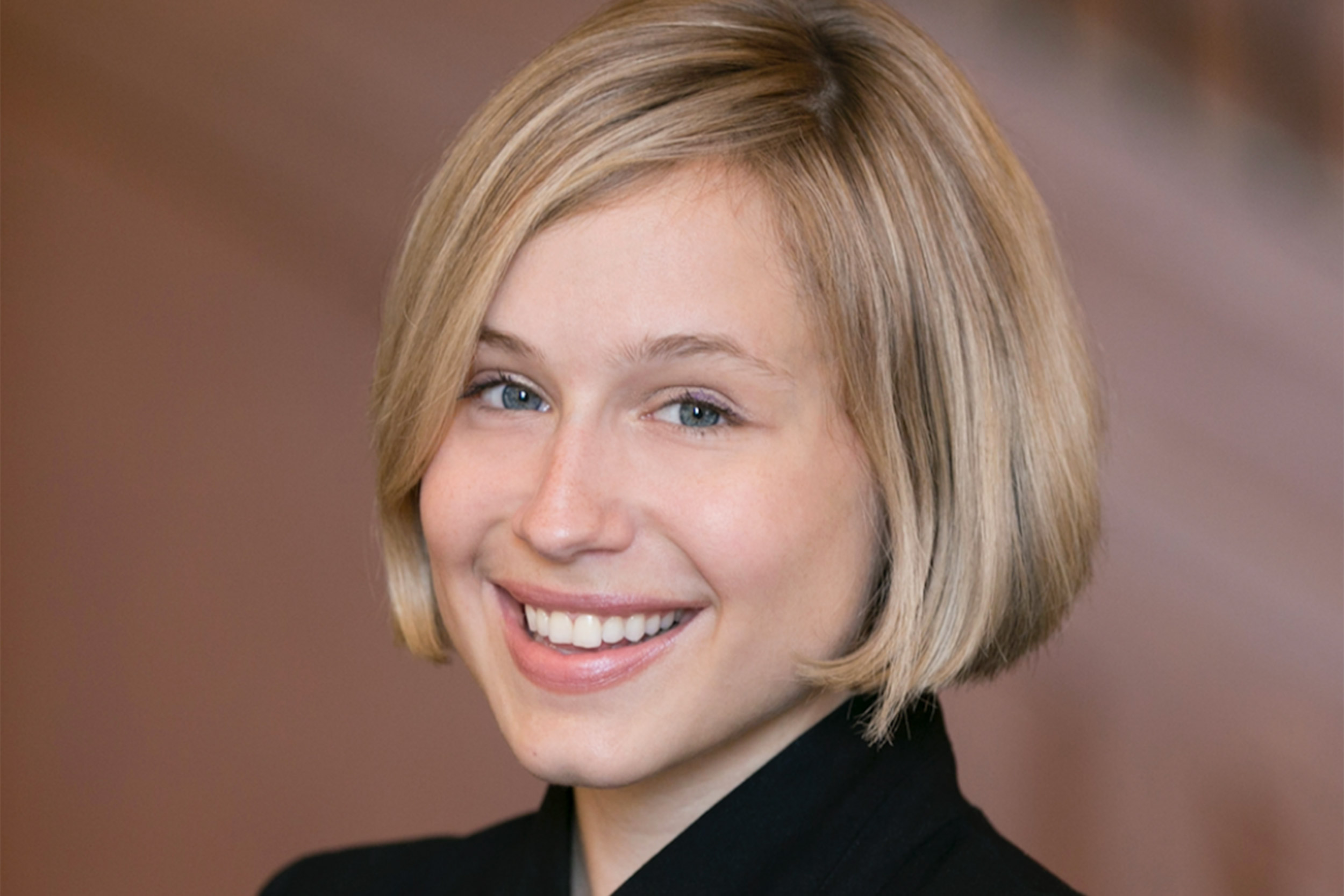
Most years pass without clear demarcation. However, there is no doubt that 2020 will serve as a break, boundary, or transition that will likely shape the trajectory of our entire lives. Maybe we lost a job or a parent, took on a new hobby, home-schooled our kids, or reconnected with acquaintances. Perhaps we figured out innovative ways of working and coping or learned how to be more OK with not coping at all. Personally, this was the year I threw away any “perfect” plans. I taught students and completed research experiments virtually and am holding my wedding reception over Zoom. I caught and recovered from COVID, worried about my (ER physician) fiancé’s health, and celebrated my parents’ 60th and 70th birthdays with both tears of joy and consternation. What I have felt deeply in my own life (and have seen in my data) is that 2020 has awakened many of us into remembering that time is our most valuable resource and that none of us knows how much of it we have left. As our global community continues to face climate change and social unrest, this moment has awakened all of us — startled us — hopefully toward action. As I have been so often reminded this year, there is no better time than the present to start spending our days with intentionality, presence, and purpose — one moment at a time.
Imoigele Aisiku
Associate Professor of Emergency Medicine
“I work in the emergency department and the intensive care unit (ICU) and couldn’t have been more excited to be part of the team, versus watching the pandemic unfold on TV. However, the fear of bringing COVID home to my 3-month-old frightened me.”
Courtesy of BWH
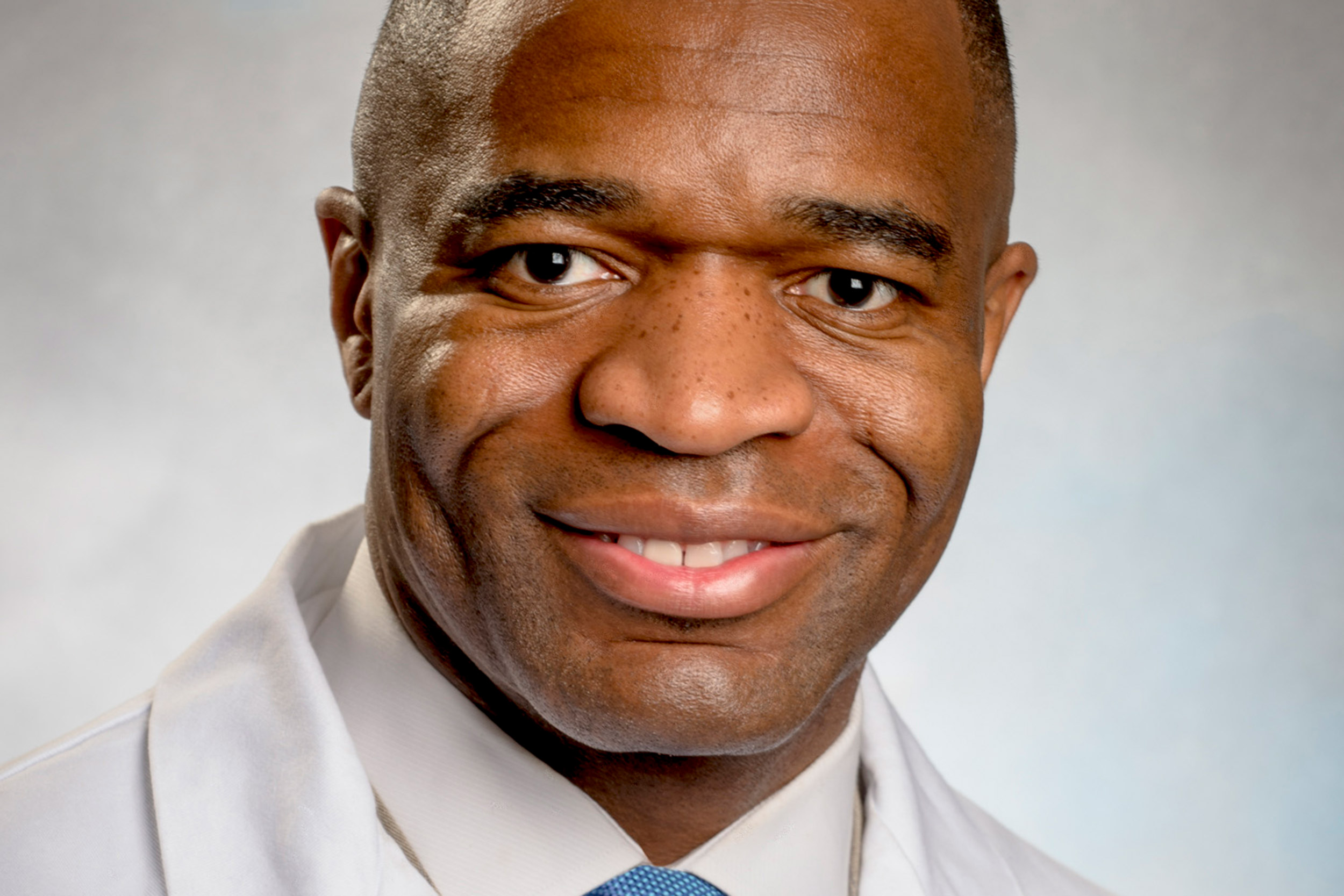
I’ve often wondered what it would be like to live during a historic time, and if I would appreciate the significance of it in real time. Twenty-twenty has been a historic year, and I’m not sure I can grasp the impact of all that has happened. As the year comes to an end, I can’t help but reflect. My first son turned 1 last week. Three months after we welcomed him into the world, I returned from paternity leave to the Brigham and Women’s Hospital’s COVID special pathogens unit, a two-story triage tent outside 75 Francis St., and to wearing a mask everywhere. I work in the emergency department and the intensive care unit (ICU) and couldn’t have been more excited to be part of the team, versus watching the pandemic unfold on TV. However, the fear of bringing COVID home to my 3-month-old frightened me at the same time. Juggling being a responsible first-time father and a devoted clinician is difficult. COVID brought challenges to us all in too numerous ways to count and many more stories far more difficult than my own. As we were coming to grasp that our lives may be changed forever, that life as we have known it may not return to normal any time soon or ever, the year was still barely halfway done. Just as the virus was teaching us that minorities were particularly vulnerable, the country, in an amazingly unified way, taught us about systemic racism, police brutality, and health disparities. Protests across the country opened our eyes to a different type of virus, and the combination of COVID and racism was unimaginable and unprecedented. Today, I serve as the vice chair for diversity in the hospital’s department of emergency medicine as and the director of the hospital’s Office of Inclusion, Diversity, Equity, and Social Justice (IDEaS) in addition to my clinical duties. As 2020 comes to a close, I’m proud of how we have come together to fight COVID and racism. As a father, a clinician, and a Black man, I will remember 2020 as an epic year. Joy, sadness, fear, and enthusiasm are some of the emotions I have felt this year, but with greater passion. I am amazed and proud to have lived during this pandemic, and hopefully through it.
Stephen Greenblatt
John Cogan University Professor of the Humanities
“In spite of everything, the students managed to fashion a collective College experience for themselves, and in doing so they succeeded in bringing me out of my own experience of isolation and into a vital, shared world.”
Stephanie Mitchell/Harvard file photo
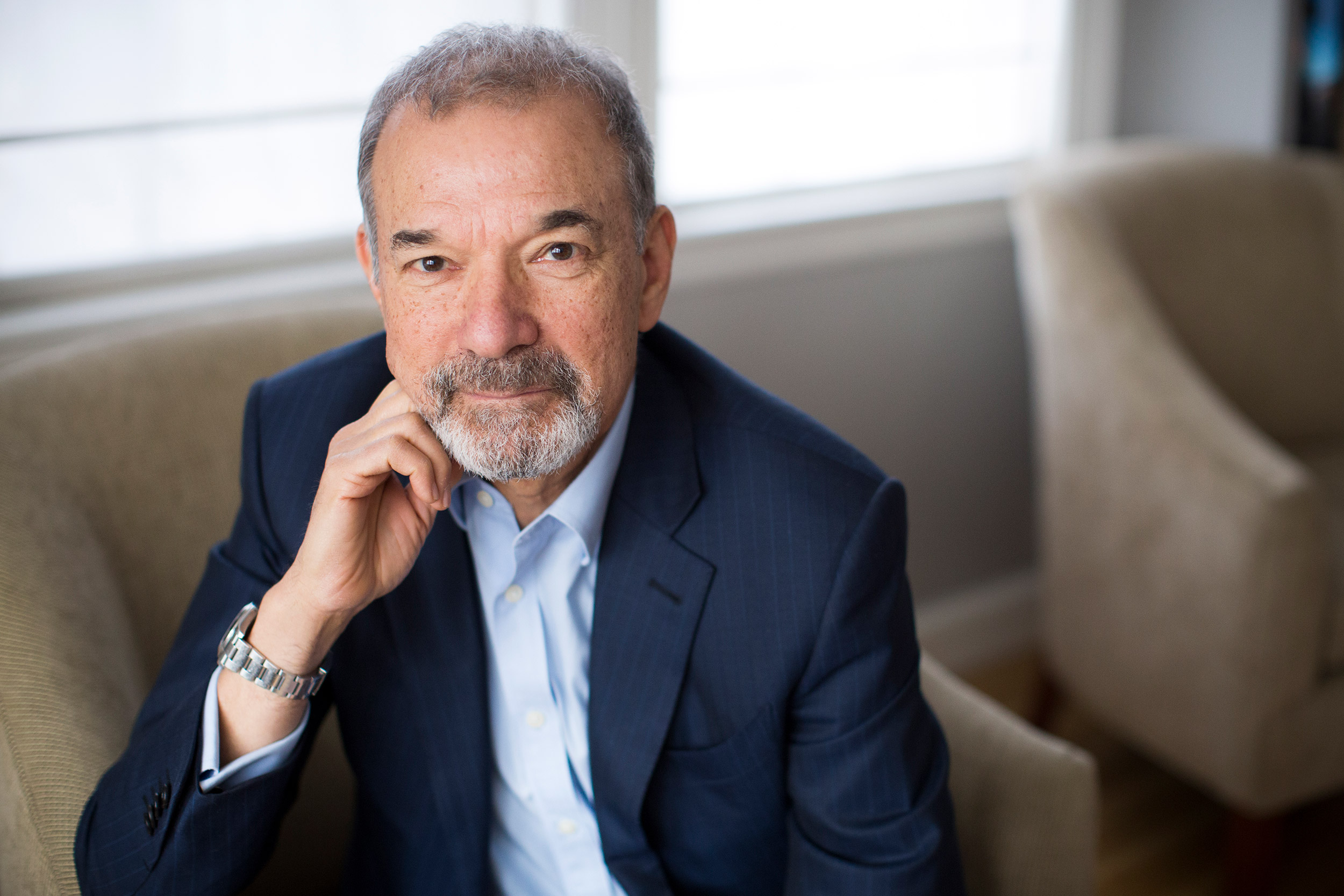
I began 2020 on sabbatical in Rome. Early in January, when my wife and I read in the Italian newspapers about a strange illness in Hunan, we felt both commiseration and relief that it was on the other side of the globe. But then it showed up, with a vengeance, in the north of Italy. We felt the same mix of feelings, this time telling ourselves that the disease was in the north of the country, on the other side of the Apennines. Of course, it did not long remain there, but began its relentless march down the peninsula. At the beginning of March we packed our bags and returned to Cambridge, not because we believed a word of the absurd reassurances that the U.S. president was spouting, but because we thought it would be better to hunker down at home. I will long remember the eerie sight of a completely empty Munich airport, where we changed planes on our flight home. And I will remember too, the customs official at Logan who, when we tried to tell him that we were coming from virus-ravaged Italy, asked us only if we had been in China and then, on our replying, “No,” cheerfully waved us through without another word.
But in the long run when I look back at 2020, I will remember something more positive. This past semester I taught Hum 10, a 90-student intensive humanities course for first-years. The course was entirely remote; the students, though on campus, were what Shakespeare calls “cabined, cribbed, and confined”; and I felt great sadness for young people who were fated to have such a weird initiation into their College career. But ultimately, I was deeply moved by their fantastic resilience and inventiveness. Week after week they rose to the occasion, using the Chat function, the Slack channels, the Breakout Rooms, and all the other bells and whistles to create a genuine learning community. In seminar meetings, in regular office hours, and in evening sessions that lasted until 10 p.m. and later, they exchanged ideas, told each other stories, learned about their interests and their challenges. In spite of everything, the students managed to fashion a collective College experience for themselves, and in doing so they succeeded in bringing me out of my own experience of isolation and into a vital, shared world.
Joshua Greene
Professor of Psychology
“How will we remember this earthquake year? It’s too soon tell. It all depends on what we make of this rubble. Do we rebuild? Do we recommit ourselves to truth and shared prosperity? Do we renegotiate our social contract so that all Americans can be willing signatories?”
Stephanie Mitchell/Harvard file photo
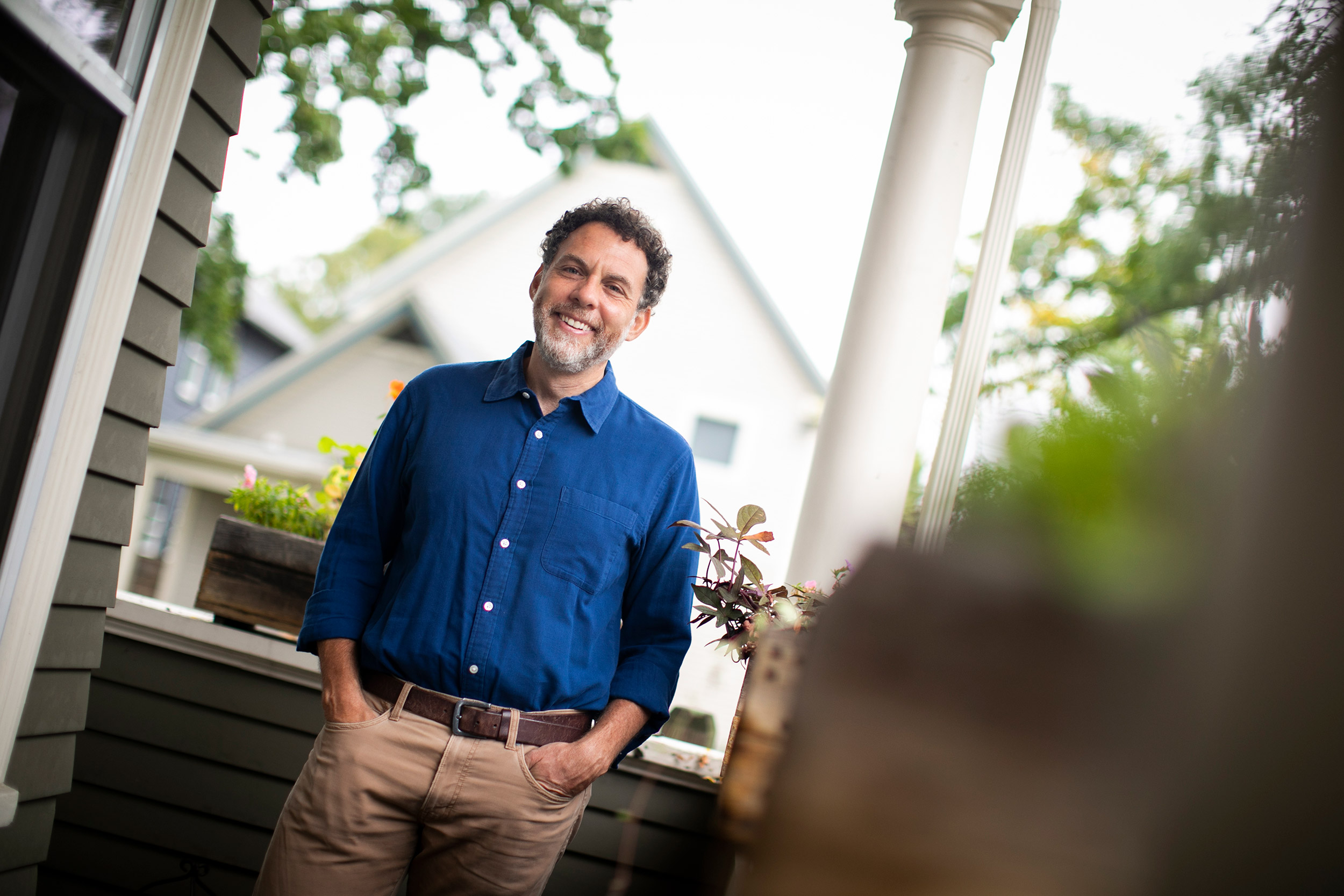
Earthquakes happen when massive pieces of the Earth’s crust rub together and release pent-up energy. Twenty-twenty was an earthquake year. Powerful economic and cultural forces, steadily moving for decades, strained and scraped against each other, toppling longstanding social institutions and rattling us all. COVID has killed over 1.5 million people worldwide, but when it comes to avoidable suffering, the United States reigns supreme, as the world’s wealthiest nation tops 300,000 deaths. The essential feature of democracy — the transfer of power by vote rather than violence — is under assault, not only from the president of the United States, but from one of our two major political parties, which has adopted lying and vote suppression as its core strategies. The Earth burned. And the videotaped death of George Floyd, murdered by a police officer as his blue brothers looked on, was one of the most horrific displays of American racism in decades.
How will we remember this earthquake year? It’s too soon tell. It all depends on what we make of this rubble. Do we rebuild? Do we recommit ourselves to truth and shared prosperity? Do we renegotiate our social contract so that all Americans can be willing signatories? Biden’s victory, despite the lies and undemocratic obstacles, offers hope. The new vaccines, created in record time using cutting-edge biological knowledge, are a triumph of human ingenuity. Likewise, the plummeting cost of renewable energy — largely unnoticed amid the tumult of recent years — may be what saves us from climate disaster. And the movement for racial justice is finally mainstream, thanks to the tireless efforts of countless activists.
We may remember 2020 as the turning point, the year that our nation hit bottom and began its re-ascent. Or we may remember 2020 as the downward inflection point. I remain cautiously optimistic. Twenty-twenty, the calendar year, is nearly over, but the meaning of 2020 is unwritten. That will depend on our ability to control and redirect the energy it has released.
Evelyn Hu
Gordon McKay Professor of Applied Physics and Electrical Engineering
“As I tried to make the best of the inadequacies of the online environment, I realized that I should have been investing in that level of planning and paring, used that level of communication in all of my classes, all the time. I will remember those lessons of 2020: I hope that I can benefit from them.”
Kris Snibbe/Harvard file photo
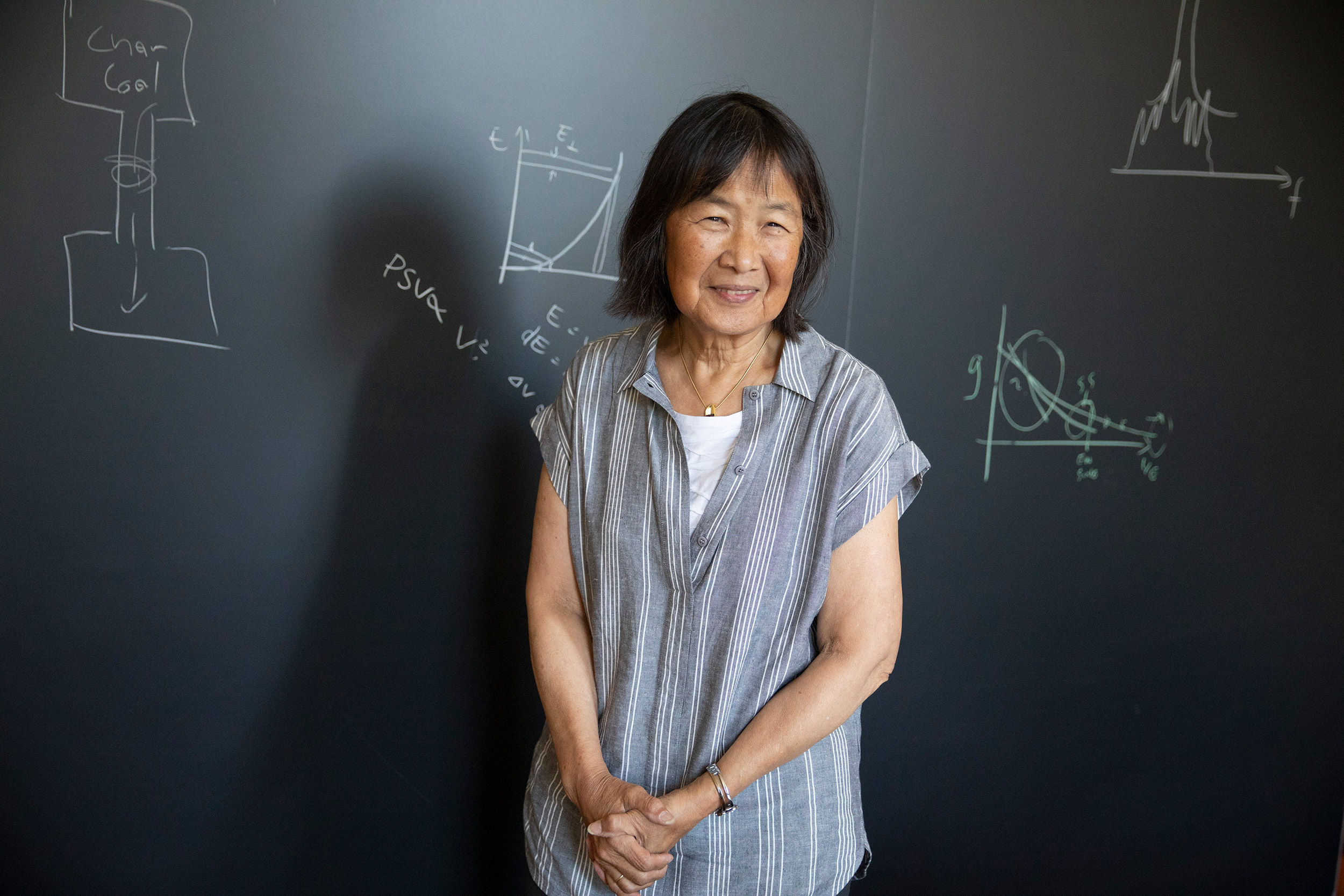
It will take the fullness of much time in order for us to truly make sense of 2020 and its impact. For me, 2020 and COVID-19 was a “time-out” that indeed had and has tragic consequences, exacting tremendous costs in lives and living, and laying bare the flaws in the ways we have constructed our societies. The enforced time-out and overnight change in the “usual” brought out great acts of humanity and generosity, but also amplified the opposite behavior.
The time-out placed focus on life-out-of-the-ordinary: restrictive in many ways, but also providing important potential for needed change. My most demanding requests for change were related to teaching in an online setting. From the moment that we took an enforced time-out from in-person teaching, my life was learning, planning, experimenting with new ways of interacting with students, with constant anxieties that I would fall short of what was needed. I realized that I had to be a better and more consistent communicator than ever before — to Teaching Fellows and to students — to better convey expectations, schedules, pace out the journey, as well as the destinations. To make time for interactions among the class, to build relationships and trust, I had to pare back the “facts” presented in lecture and yet not compromise the learning they could achieve. I had to not only establish dialogue and trust between myself and the students and TFs, but also seed trust and cooperation among the students so that they would willingly work together, even over different locations and time frames.
As I tried to make the best of the inadequacies of the online environment, I realized that I should have been investing in that level of planning and paring, used that level of communication in all of my classes, all the time. I will remember those lessons of 2020: I hope that I can benefit from them.
Bill Hanage
Associate Professor of Epidemiology
“I am furious at those who have downplayed the threat of the virus, both directly to life and indirectly to livelihood while refusing to countenance the action required to save lives and livelihoods. It doesn’t matter if it is incompetence and not malice, the failure to face reality is cowardice.”
Photo by Eve Hanage
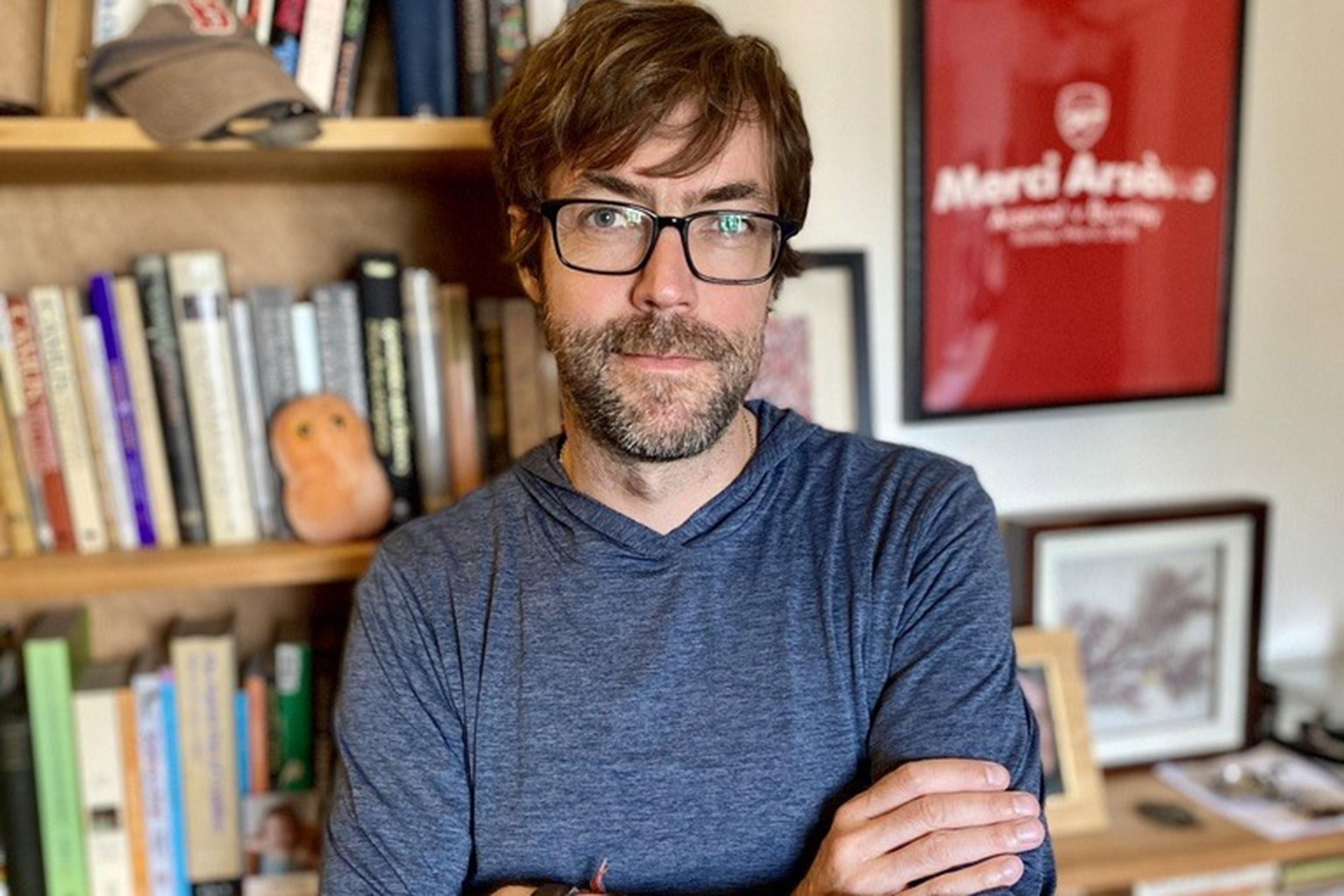
More than anything, the pandemic has revealed ugly things about what we view as most important in our society and what we are willing to do to help others, alongside the deep and savage divisions that have been deliberately stoked by some for their own gain over the last decade.
The media is insatiable. Drew Faust once said, “As a scholar, you don’t want to repeat yourself, ever. You’re supposed to say it once, publish it, and then it’s published, and you don’t say it again … As a university president, you have to say the same thing over and over and over.” I have explained the same things about the virus and transmission more times than I can remember. Does that mean I know what it is like to be a university president?
I am furious at those who have downplayed the threat of the virus, both directly to life and indirectly to livelihood while refusing to countenance the action required to save lives and livelihoods. It doesn’t matter if it is incompetence and not malice, the failure to face reality is cowardice.
I am both moved by the astonishing progress that has been made in vaccine research and profoundly depressed that much of the world will still be waiting to be vaccinated, likely for years, due to practical difficulties in distribution and the shameful existence of “vaccine nationalism.” Nevertheless, the scientific successes of the last 12 months should inspire us that even though it will take an enormous amount of work to build a better world, a better world is there to be built.
Lawrence D. Bobo
W.E.B. Du Bois Professor of the Social Sciences at Harvard University
“Yes, 2020 has unquestionably been a hard, terrible year. As disorienting and unsettling a year as it has been, I can say also that 2020 will end on a note of guarded optimism for me.”
Stephanie Mitchell/Harvard file photo
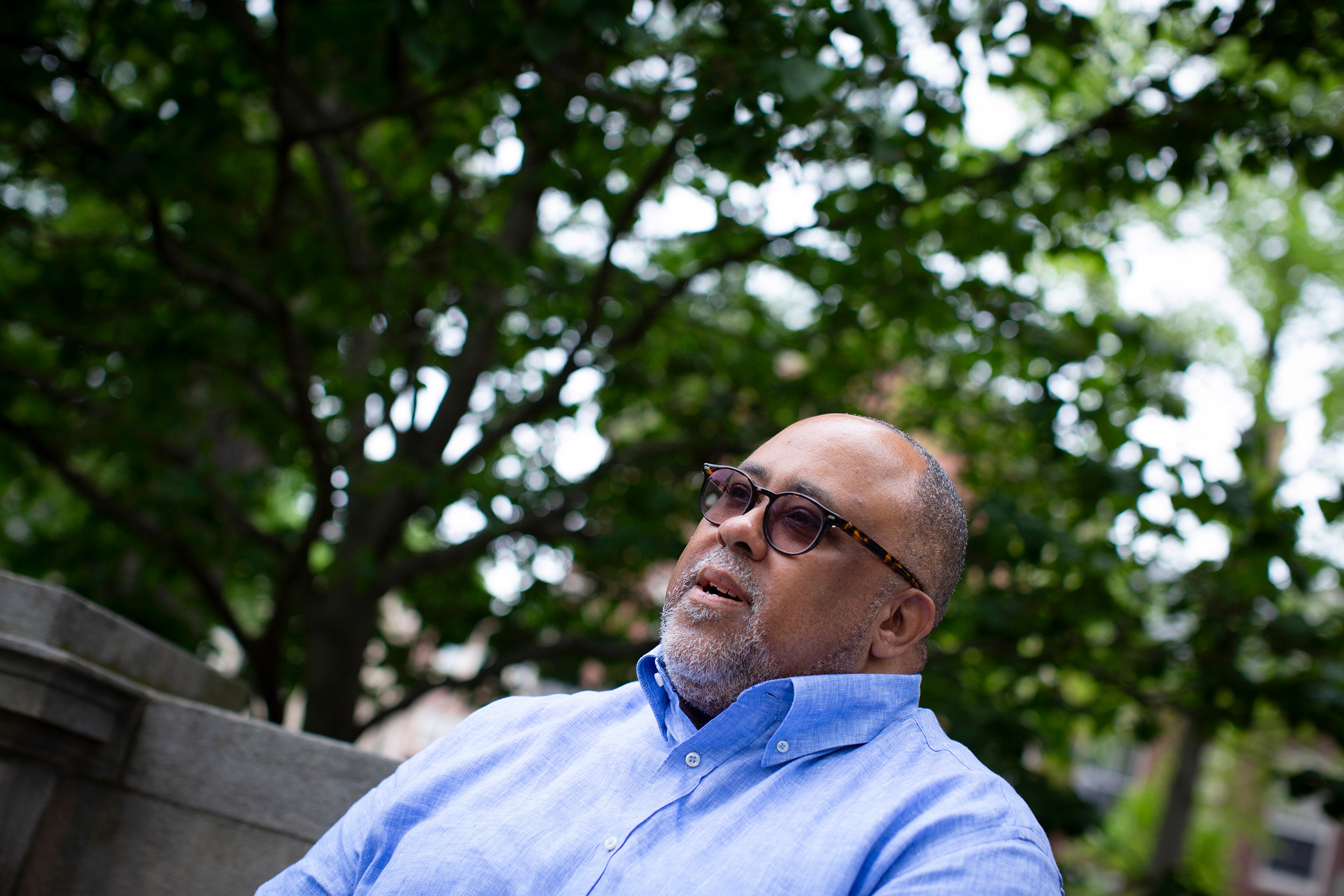
During my graduate school days, at the completion of the data-collection phase of a lengthy and frustratingly difficult project, one of my advisers looked at me as we packed up the last boxes of research materials and said: “You know, as awful as this has been, this has been terrible!” So too the year 2020. The year hit us with a series of powerful punches from the COVID-19 pandemic, to the economic calamity precipitated by responses to it, to the brutal police killing of George Floyd, to the deeply etched inequalities of race and class brought again into painful relief by the intertwining tragedies of the pandemic, police brutality, and profound economic dislocations. What is more, the bitter polarization and ugliness of the 2020 campaign for the presidency had no parallel in the post-World War II era. Yet and still, signs of hope and renewal emerged. Better strategies of response to the coronavirus emerged, both in medical treatment, public health practices, and the development of multiple effective vaccines. Americans voted to send the divisiveness, bigotry, and anti-democratic ethos of the Trump administration into the dustbin of history. The climate for serious redress of racial injustice and worsening economic inequality seem much more sanguine. Yes, 2020 has unquestionably been a hard, terrible year. As disorienting and unsettling a year as it has been, I can say also that 2020 will end on a note of guarded optimism for me.
I. Glenn Cohen
James A. Attwood and Leslie Williams Professor of Law
“Whether it was family members getting sick from COVID or fears about the direction of this country, I feel like we all went through something profound that has created a bond quite different from just about any other teaching experience I have had.”
Rose Lincoln/Harvard file photo

My 2020, even more than usual, divides into service, teaching, and research.
I helped lead the Law School’s first-in-history move to offer a fully online semester, spending most of my summer/fall setting up the infrastructure for this move and helping colleagues get ready. It has been challenging but also an amazing moment of esprit de corps and learning from colleagues at the Ed School and other Harvard Schools in unprecedented ways.
In my own teaching, my biggest insight has been the extent to which a big piece of my teaching at Harvard is not just “intellectual labor” but also “emotional labor.” The first-year law students I taught this fall feel much more like family to me than ever before. Whether it was family members getting sick from COVID or fears about the direction of this country, I feel like we all went through something profound that has created a bond quite different from just about any other teaching experience I have had.
I would score research 70 percent very positive and 30 percent disillusionment. The positive has been that my field, bioethics and health law, really took center stage, and I and many others were able to get ideas/views from the world of academic thinking to the world of policy implementation in a speed that would ordinarily be impossible. I think, for example, of the way with colleagues we translated an academic article from JAMA to the op-ed pages of The New York Times, to actual legislation in a time frame of weeks, not years. Whether it was writing and talking about ventilator shortages, “immunity passports,” mask mandates, or using digital apps to do disease surveillance, the world was looking to us for answers (or at least to frame the right questions), and we were ready. I have also been very happy to the extent at which COVID-19 has led to increased recognition of racial and other disparities in health care access.
The 30 percent disillusionment has had two main reasons: first, the way in which medical misinformation dominated the year and became weaponized. The second is the extent to which COVID-19 presented a missed opportunity for discussions of global justice, for example the way discourse on vaccines and other interventions has focused so heavily only on within-nation just distribution.
Lastly, I am aware that as a healthy person without children I have been in a privileged place and face obligations to do more for the University community.
Caroline Buckee
Associate Professor of Epidemiology
By any measure of human health or well-being, this year has been catastrophic. The pandemic has laid bare national and global inequalities that we knew existed but have systematically failed to address: Patterns of COVID-19 cases and deaths in the U.S. have confirmed that as a matter of policy and practice, our society does not care about poor people, incarcerated people, or people of color — Black people in particular. Furthermore, pandemic policies have been shaped by social networks of powerful people and by the “Old Boys Club” — which as far as I can tell remains robust and unrepentant — rather than by the most knowledgeable experts.
For me, these realizations have brought sadness and anger, but also clarity. The fact is that we were not ready for this pandemic, and we will not be ready for the next one unless we fundamentally rethink how we do science, how we make public health policy, and how we structure our societies. This terrible year could either be a catalyst for a new approach to health systems and applied research or a depressing continuation of the status quo that will undoubtedly fail to protect us against future pandemics. I will fight for the former, but I fear the latter.
Everyone is tired, of course, but for women and underrepresented minorities in science, the headwinds we have been fighting our whole careers became gale-force winds in 2020. As a single mother of two children, I have struggled with remote School and with living far away from my family, so I cannot imagine how this year must have been for working single mothers without my many privileges.
Yet in spite of everything, 2020 was not without light. The pace of science has been truly astonishing, with the delivery of the first effective vaccines less than a year after the virus emerged. I have been lucky to work with great scientists, old and new friends and Centers for Communicable Disease Dynamics alumni, on COVID-19 projects that I hope will make a small difference. My own lab group — scattered around world but connected by Zoom — has worked with dedication, compassion, and rigor to produce policy-relevant science, and they are a continuing source of pride and appreciation. I have been able to spend more time with my children, and I adopted a puppy from a shelter in Puerto Rico (her name is Ruth Bader Ginsburg).
Most of all, a network of family and friends has kept me going, over Zoom or outside and 6 feet away: the WhatsApp group of mothers who are also academics, my parents and sisters, my children, my nanny and her husband, my HSPH collaborators, and my friends. In the words of poet Adrienne Rich, they are the ones “among whom we can sit down and weep and still be counted as warriors,” and throughout this awful year they have given me hope that we will get through this and find ways to change our institutions and societies for the better.




